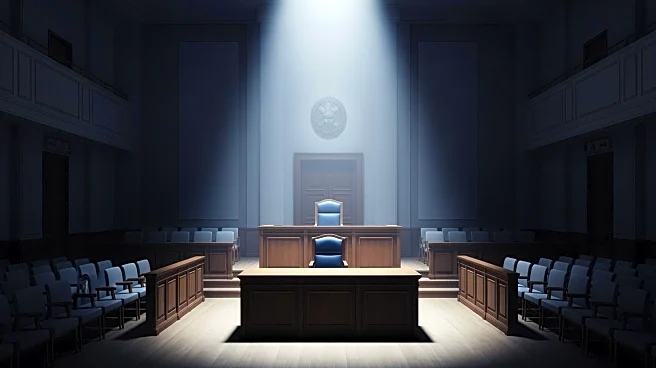What's Happening?
President Trump has appealed to the Supreme Court to permit the deployment of National Guard troops in Chicago, following a lower court's decision to block the move. The administration argues that the lower court's order improperly restricts the president's
authority and endangers federal personnel. The appeal is part of a broader legal battle over the president's power to deploy military forces in U.S. cities, particularly those led by Democratic governors. The administration seeks a swift decision from the Supreme Court to proceed with the deployment while the case is under consideration.
Why It's Important?
This case underscores the ongoing debate over presidential authority and the use of military forces within the United States. A ruling in favor of the Trump administration could expand the president's power to deploy military forces domestically, potentially affecting future federal interventions in state matters. The decision could also influence the legal framework governing the balance of power between federal and state governments, particularly in areas related to immigration enforcement and public safety. The outcome may have significant implications for civil liberties and the role of the military in domestic affairs.
What's Next?
The Supreme Court has requested a response from state and local officials, indicating that a decision may be imminent. The court's ruling could set a precedent for future cases involving federal deployment of military forces in domestic situations. Meanwhile, legal challenges and protests continue in other states, such as Tennessee and Oregon, where similar deployments have been contested. The outcome of this case could influence these ongoing disputes and shape the future of federal-state relations.
















